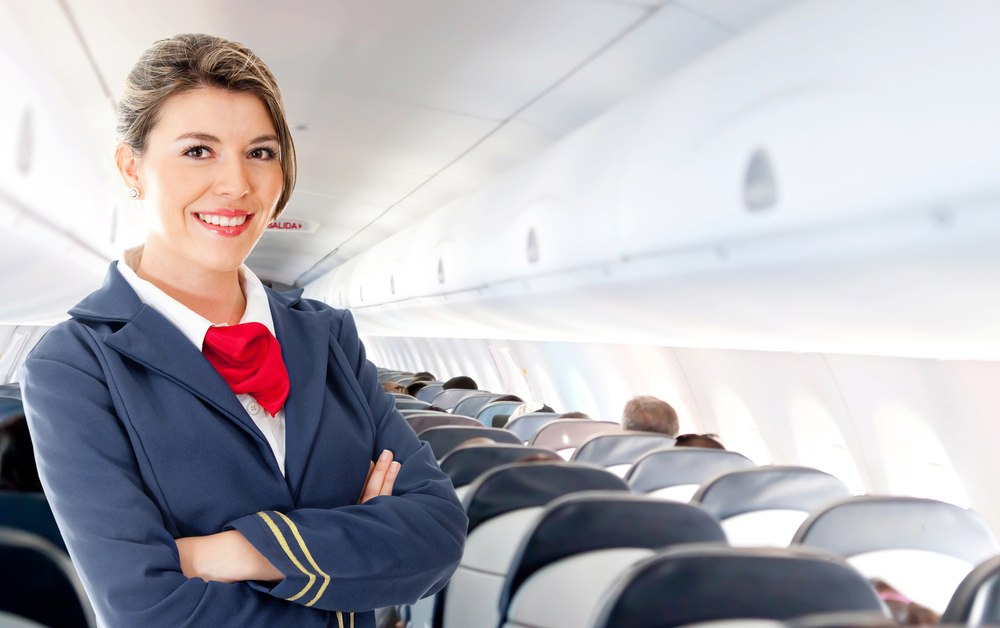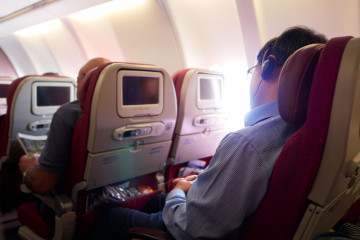Here are 10 travel tips by seasoned flight attendants to make your summer travel experience smoother!
Summer vacations are exciting, relaxing, and the best that life can offer. But as fun as the vacations are, summer travelling can be a nightmare. Well, married flight attendants Rich Henderson and Andrew Henderson, have some advice for everyone. The couple have worked on major US airlines for roughly 10 and 20 years respectively. The two, along with Essence Griffin, have shared 17 tips to survive summer travel.
If you can, travel early in the day
Travelling first thing in the morning is the best way to avoid rippling cancellations and delays throughout the day. Usually, the airport and airline system resets itself overnight so you are unlikely to face the aftershocks of the previous day.
“You face less delays and less weather if you can get on the first flight of the day versus waiting until late afternoon,” says Andrew.
“The earlier on in the day, the less delays you’ll encounter,” Griffin echoed.
“I mean, nobody likes a 5 a.m. flight,” says Rich. “But I tell you what, they’re way easier than the ones later in the day. There’s just fewer issues, there hasn’t been a chance for things to go wrong.”
Book off-peak travel days
Most passengers seek to travel during peak times such as Friday evening or Monday morning. As a result, “these are both going to be really busy travel days,” explained Andrew. “So if you can go on Tuesday, you’re less likely to encounter as many people or problems that you would if you chose Friday at 5 p.m. when work is letting out.”
Leave buffer time in case of events
Leaving a day buffer between your flight’s arrival and the big event will ensure delayed flights don’t wreak havoc on your plans. If you are travelling for a wedding or a cruise departure, for example, a buffer will help avoid any last-minute difficulties before the event.
“I see often people are trying to make the most of their time by cutting it really close. And that really just adds so much stress to your travel,” says Rich.
“Leave yourself a buffer if you’ve got to be somewhere – if you can make it work, go a day early. Because that way you know you just take all the unpredictability out of it, you give yourself time to be delayed and that sort of stuff won’t stress you out as much.”
Avoid tight connections
“We always see people running from plane to plane through terminals,” says Rich. “They’ll give themselves a minimum window of connecting time.”
A minimal transit time might be the cheapest option but avoid picking that. Instead, it is advisable to spend a little extra or explore other airlines.
Andrew highlighted the importance of longer connections, particularly for international flights. If flying long haul, it is best to double whatever you consider to be the “normal” connection time.
“Particularly if you’re travelling to Europe from the US, because all of those flights leave in the evening, and the weather has had time to build up,” he says. “We see a lot more of those going delayed.”
Read the fine print of your airline booking
Policies vary for different airlines. Familiarising yourself with the policies of your chosen airline will help you understand what it can and can’t offer you in the event things don’t go to plan.
According to Rich, this is especially important if you’ve booked with a third-party booking agent as you can be traveling with multiple different airlines and not even realize it.
Since different airlines offer different amenities, this will also help you prepare yourself in terms of what to expect from your journey.
“Be prepared, always read the fine print, always know what you’re getting into, who you’re flying on,” says Rich.
Download all the apps: airline, airport and flight tracker
Airline apps can be extremely beneficial for the duration of your journey. If you’re worried about them hogging space on your phone, simply delete them after the trip.
“If you don’t have the app, you are definitely flying blind. I would never travel without downloading the app for the airline I’m flying on,” says Griffin.
“It’ll tell you when you’re boarding, if you’re running late you’ll know if the flight’s still there, if it got delayed. You’ll see seat changes, gate changes, information about your boarding passes, upgrades…”
Rich also recommends downloading the apps for your departure and destination airport, as well as apps that track flight arrivals, such as FlightAware.
These apps sometimes update before the airplane/airport overhead announcements. Having this intel on your phone avoids you from sitting at the gate or on a grounded airplane wondering what’s going on.
“You can see delays coming, you can see where your plane is coming from,” says Rich. “That helps alleviate a lot of the stress for people. Staying informed and staying connected and educating yourself about what’s happening will definitely help your journey.”
Arrive at the gate early
Arrive at the gate well on time before your flight leaves. While this may seem obvious, Griffin shared that she’s often seen travellers arriving at the gate, takeout coffee in hand, in disbelief that they’ve missed the flight despite having been at the airport for hours.
“Usually boarding starts 30 minutes prior. And most of the time, they want to have that door closed within 10 to 15 minutes before departure,” she says. “And once the doors are closed, that’s it.”
Keep an eye on the flight time and boarding announcements from the minute you arrive at the airport. Check your airline and airport apps for updates. Waiting near the gate can help you avoid running across the airport but you should keep an eye out for last-minute gate changes.
Avoid the customer service line in case of cancellations or delays
Instead of waiting in a line of frustrated passengers, use your phone for searching options online or to call the airline helplines.
Griffin also recommends speaking with the gate agents over the customer service team. Often they have intel they can pass on, and can help you resolve numerous situations.
“If you’re at your gate and you’re waiting and there’s delays, you can always talk to the gate agent right there,” she says. “They have the power and knowledge to get you on different flights.”
Pack snacks
Relying on eating meals on your flight can leave you disappointed and hangry in case your flight is delayed or food is minimal.
“Don’t rely on the airline as your primary source of food,” advises Rich. “If you can bring granola bars and different packable foods like that, or get food in the airport? I say definitely do it. And then if there is food available on the plane, that’s kind of just a bonus.”
“Bring something for you so that you’re not relying on the airline to meet those needs. Because they don’t always, unfortunately,” says Rich.
“You may have a perfect experience where you get all your food and all your amenities and needs are met – but you’re going to be a lot happier on your journey if you are prepared for all the things that could go awry during your journey.”
Griffin also recommends carrying reusable water bottles in your carry-on.
Dress for the journey, not the destination
A go-to piece of advice by Andrew, take into account the inflight ecosystem while dressing. As well as being comfortable, you also want to allow for any eventualities. If your flight ends up getting cancelled or delayed overnight, you might have to disembark and reboard.




1 Comment
zestoretic 20 25 mg